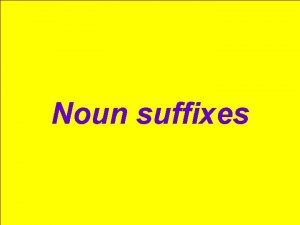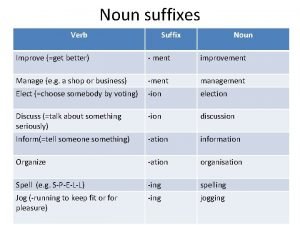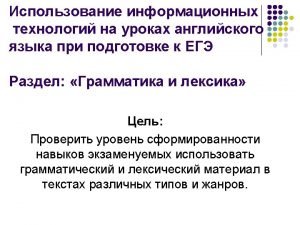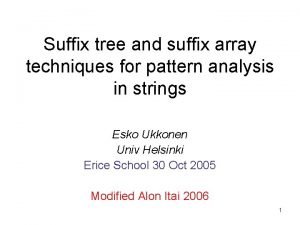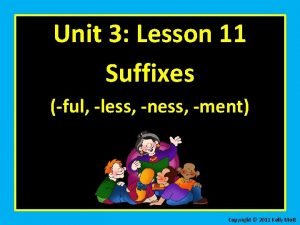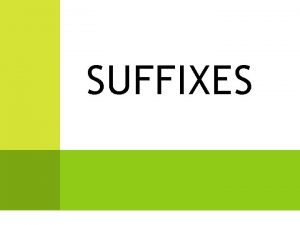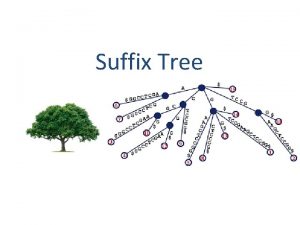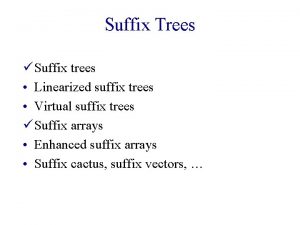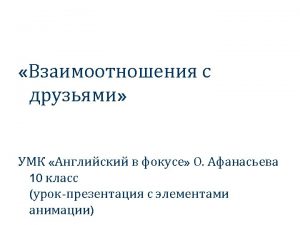Noun suffixes Verb noun suffix verb suffix Noun

Noun suffixes

Verb + noun suffix verb suffix Noun improve -ment improvement government management elect -ion election discussion information spell -ing spelling

• There has been a big improvement in the economy. • The problems are due to bad management.

Adjective + noun suffix adjective suffix noun weak -ness weakness ill stupid similar illness -ity stupidity similarity

We have a weak government What’s her main weakness as a manager? She was ill for a long time. Hepatitis is a very serious illness.

-er/-or and -ist • These suffixes can be added to nouns or verbs. They often describe people and jobs. -er Ballet Bus driver dancer Pop singer Profession al footballer murderer employer -or -ist Television actor Film director translator artist economist journalist

• Im- is used before “L”, • e. g illegible(=imposible to read because the writing is bad) • Ir- is only used before few words beginning with “R” e. g irresponsible

• Dis- is used before some adjectives, • e. g. dishonest and few verbs, e. g. dislike, disagree.

Verbs prefixes: un- and dis • With some verbs, these prefixes can also mean “the opposite of an action” • The plane appeared in the sky, then suddenly disappeared behind a cloud. • I locked the door when eft, but then I lost the key and couldn’t unlock it when I got back.

• I got dressed (put on my clothe) • I got undressed • I had to pack my suitcase. • I had to unpack my suitcase.

Other verb prefixes with specific meaning • Re- (again) the shop closed down but i’ll reopen next month. • Over-(too much) I went to bed too late and I overslept. • Mis(badly or incorrect) I’m afraid I missunderstood what he said.
- Slides: 11



